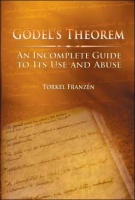Mark Dominus (陶敏修)
mjd@pobox.com

Archive:
| 2025: | JFMAMJ |
| JAS | |
| 2024: | JFMAMJ |
| JASOND | |
| 2023: | JFMAMJ |
| JASOND | |
| 2022: | JFMAMJ |
| JASOND | |
| 2021: | JFMAMJ |
| JASOND | |
| 2020: | JFMAMJ |
| JASOND | |
| 2019: | JFMAMJ |
| JASOND | |
| 2018: | JFMAMJ |
| JASOND | |
| 2017: | JFMAMJ |
| JASOND | |
| 2016: | JFMAMJ |
| JASOND | |
| 2015: | JFMAMJ |
| JASOND | |
| 2014: | JFMAMJ |
| JASOND | |
| 2013: | JFMAMJ |
| JASOND | |
| 2012: | JFMAMJ |
| JASOND | |
| 2011: | JFMAMJ |
| JASOND | |
| 2010: | JFMAMJ |
| JASOND | |
| 2009: | JFMAMJ |
| JASOND | |
| 2008: | JFMAMJ |
| JASOND | |
| 2007: | JFMAMJ |
| JASOND | |
| 2006: | JFMAMJ |
| JASOND | |
| 2005: | OND |
Subtopics:
| Mathematics | 245 |
| Programming | 99 |
| Language | 95 |
| Miscellaneous | 75 |
| Book | 50 |
| Tech | 49 |
| Etymology | 35 |
| Haskell | 33 |
| Oops | 30 |
| Unix | 27 |
| Cosmic Call | 25 |
| Math SE | 25 |
| Law | 22 |
| Physics | 21 |
| Perl | 17 |
| Biology | 16 |
| Brain | 15 |
| Calendar | 15 |
| Food | 15 |
Comments disabled
Mon, 14 Dec 2009
Another short explanation of Gödel's theorem
In yesterday's article, I
said:
A while back I started writing up an article titled "World's shortest explanation of Gödel's theorem". But I didn't finish it...
I went and had a look to see what was wrong with it, and to my surprise, there seemed to be hardly anything wrong with it. Perhaps I just forgot to post it. So if you disliked yesterday's brief explanation of Gödel's theorem—and many people did—you'll probably dislike this one even more. Enjoy!
A reader wrote to question my characterization of Gödel's theorem in the previous article. But I think I characterized it correctly; I said:
The only systems of mathematical axioms strong enough to prove all true statements of arithmetic, are those that are so strong that they also prove all the false statements of arithmetic.I'm going to explain how this works.
You start by choosing some system of mathematics that has some machinery in it for making statements about things like numbers and for constructing proofs of theorems like 1+1=2. Many such systems exist. Let's call the one we have chosen M, for "mathematics".
Gödel shows that if M has enough mathematical machinery in it to actually do arithmetic, then it is possible to produce a statement S whose meaning is essentially "Statement S cannot be proved in system M."
It is not at all obvious that this is possible, or how it can be done, and I am not going to get into the details here. Gödel's contribution was seeing that it was possible to do this.
So here's S again:
S: Statement S cannot be proved in system M.
Now there are two possibilities. Either S is in fact provable in system M, or it is not. One of these must hold.
If S is provable in system M, then it is false, and so it is a false statement that can be proved in system M. M therefore proves some false statements of arithmetic.
If S is not provable in system M, then it is true, and so it is a true statement that cannot be proved in system M. M therefore fails to prove some true statements of arithmetic.
So something goes wrong with M: either it fails to prove some true statements, or else it succeeds in proving some false statements.
List of topics I deliberately omitted from this article, that mathematicians should not write to me about with corrections: Presburger arithmetic. Dialetheism. Inexhaustibility. ω-incompleteness. Non-RE sets of axioms.
| Buy Godel's Theorem: An Incomplete Guide to Its Use and Abuse  from Bookshop.org (with kickback) (without kickback) |
If you liked this post, you may enjoy Torkel Franzén's books Godel's Theorem: An Incomplete Guide to Its Use and Abuse and Inexhaustibility: A Non-Exhaustive Treatment. If you disliked this post, you are even more likely to enjoy them.
Many thanks to Robert Bond for his contribution.
[Other articles in category /math] permanent link



